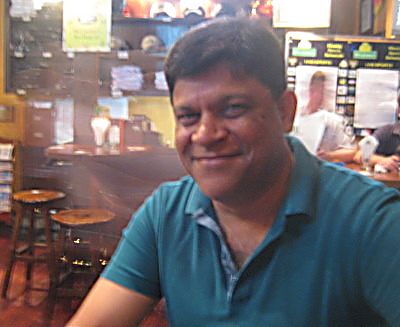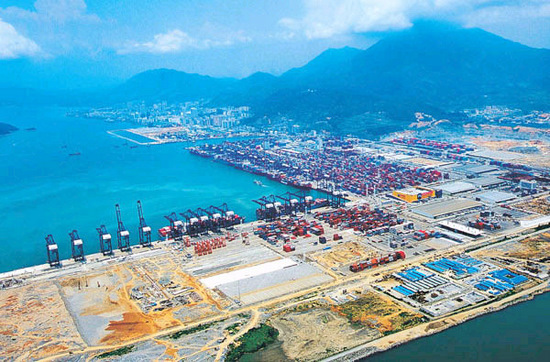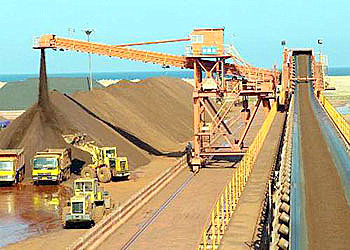
Photo: Andrew Vanburen
NEXTINSIGHT BRINGS YOU a series of interviews with both locals and expatriates who call the southern Chinese metropolis of Shenzhen both their workplace and home.
Our aim is to offer insights into what could be The Next Big Thing – Shenzhen – a city whose GDP growth and population have outpaced those of its richer neighbor, Hong Kong, seemingly since people began paying attention to the big and little dragons’ economic performance in the first place.
We also hope to bring a series of revealing snapshots on just what it takes for non-locals, as well as native Chinese, to live and work here, and thrive while doing so.
A common thread linking these industrious expats and successful locals together is how they have taken the best from their diverse backgrounds to make a name for themselves in what is an oftentimes faraway place like Shenzhen.
Things are rapidly changing in this dynamic 10-mln strong city which sports the highest percentage of non-local born residents of all the country’s major population centers.
London, New York and San Francisco of old – which in Chinese translates as “Old Gold Mountain” due to the belief by some in centuries past that the streets of America were indeed paved with the stuff.—were the destination of millions of Cantonese, Fujianese and other immigrants from Cathay looking to find their fortune in far-off, mysterious and more prosperous lands.
Now the hosts are becoming the guests as more and more foreigners – and successful Chinese from far flung provinces – are seeking to improve their lot in Shenzhen.
In this installment, we meet Mr. Hemant Dhanu, a native of India and permanent resident of Singapore, who has been in Shenzhen for nearly half a year working as a senior consultant with GO MARINE Shipping and Offshore Pte Ltd.
NextInsight: As a businessperson living and working in Shenzhen, what were your original impressions upon getting off the plane at Bao An Airport?

Mr. Dhanu: Actually, I have been coming here on and off since 1998 for various business-related reasons. Being based in Singapore, it’s quite convenient and less than a three-hour flight to either Shenzhen or Hong Kong (just across the border from Shenzhen). As a consultant to the shipping and related logistics industries, I am often in Shenzhen as Yantian Port is the second biggest deepwater container terminal in China and fourth largest in the world.
But other than the impressive scale and efficiency of the port facility, I must say that I have seen little if any overall improvement in either the general infrastructure of the city or, in fact, the business practices and ethics of Shenzheners at work.

Although Shenzhen from a bus or taxi window is easier on the eyes than a decade ago, with whole new sections of the city now chock full of glitzy glittering skyscrapers, the modernity of this setting contrasts with the still often backwards attitude toward standard practice contractual ethics and minimum qualities of service.
It’s the little things that stand out, that you might not catch if you were a one-time visitor. Compared to say, Singapore or Hong Kong, Shenzhen has a long long way to go if it wants to catch up in certain areas.
For example, the infrastructure supporting the public transportation system is woefully inadequate. If you have the poor fortune to be reliant on the city bus system, a very user unfriendly bus-stop may or may not have a sign telling you all the routes served, how frequently busses arrive at the stop, and when the first and last busses make calls at the stop.
In addition, even if it clearly states that a bus arrives every 15-20 minutes, this is often anything but Gospel-reliable. And on top of all this, very few signs that I have bumped into are bilingual. So as an expat unable to read Chinese, I am more or less forced to take taxis, even over long distances from port to port.
So, to answer your question, I was not and still am not very impressed with the ease of living and working in Shenzhen. But I hope readers will not consider me an ingrate for criticizing my adopted city. At the same time, I hope the mayor reads this and makes some changes, but I am not holding my breath.
You mentioned the attitude toward doing business here, in what way do you find it lacking?

Mr. Dhanu: Having been coming here on and off for over 12 years, I have definitely noticed a change in attitude. Perhaps we foreigners have been spoiled by the period in the late 1990s when many Chinese were just beginning to get rich in earnest, and were more willing to put the client or customer first in order to keep said customer or client coming back.
But I think that now, 12 years later, with so many people owning cars and many of them flaunting fancy expensive makes and models, and wearing the latest fashions or carrying the hippest handbags, there perhaps are so many who have forgotten what “The Customer is Always Right” means, and I definitely have noticed a decline in a basic service mentality.
I have also perceived a growing, but slight, arrogance, but I think that sentiment can be traced historically to all areas that undergo rapid economic expansion. The nouveau “haves” are suddenly and clearly distinguishable from the “have nots” and an unfortunate arrogance by the former toward the latter emerges.
Some of it is also directed against newcomers to Shenzhen who are perceived as late arrivals aboard the economic boom.
I am here on a one-year contract, so maybe during this time I may have a much rosier opinion of Shenzhen when my time here is up. We will see.
If you could only choose one aspect of Shenzhen that you would like to change, what would it be?
Mr. Dhanu: I guess that all the things I just mentioned are more lifestyle issues, but as a professional consultant to the shipping industry, I wish those I work with – or even work for – here in China were not so afraid of uttering the word “no.”
Being shy of saying this simplest of words can cause a lot more problems down the line. If I ask a company if their stevedores or welders can complete such and such a task by a given deadline, and they say something like “Your order is very important to us,” I will reply with something like: “I appreciate that, but can you finish this job in time?” and they will often say that their workers are very diligent.
So I am left walking temporarily away from the negotiations with no idea if these contracted workers can finish the task at hand, in time.
If they don’t, my client will find someone else next time, that simple.
So my biggest problem with Shenzhen as a professional businessman is the lack of quality assurance.
And what is the best thing about working here?
Mr. Dhanu: Cost and profitability. I know I have been a bit heavy on the complaint side, but at the end of the day, if you know how to negotiate around certain pitfalls, you can still make a lot of money here in several industries, and the costs here are still competitive compared with other markets.
Have you been significantly affected by the rise in the cost of living here, whether it be transportation, food, entertainment or housing?

Mr. Dhanu: I am lucky. I am on one of those old-fashioned Expat Packages. Perhaps I am a dying breed, but it means that I really don’t have to worry about things financially for a year.
Having said that, I have been keeping tabs on the real estate market here, and across China, as it seems a good shares of investors around the world have their eyes trained on the property market here.
With all this building going on, and all these fancy flats flooding the market, any basic economist can only ask: Who is going to live in these units? Is there a big enough middle class to fill these new high-rise complexes mushrooming up all over the city?
I doubt it. So I think the property market has reached its peak, and if I owned stock in developers, if I haven’t dumped my shares yet, I would Monday morning first thing.
So what stocks would you recommend, especially as you have intimate knowledge of the shipping sector?
Mr. Dhanu: I would stick to the rule: Infrastructure stocks in Asia, and cutting edge tech stocks in the West, including nano- and bio-tech. As for my industry, I work nearly every day with bulk shippers, and I can tell you that I would put my money on Brazilian resource suppliers because I feel that Chinese steel mills are going to be shifting a lot of their iron ore orders from Australia to Brazil. Vale is bound to benefit.
See also: SHENZHEN: 25-year-old woman pool hall manager 'felt' market was fertile







